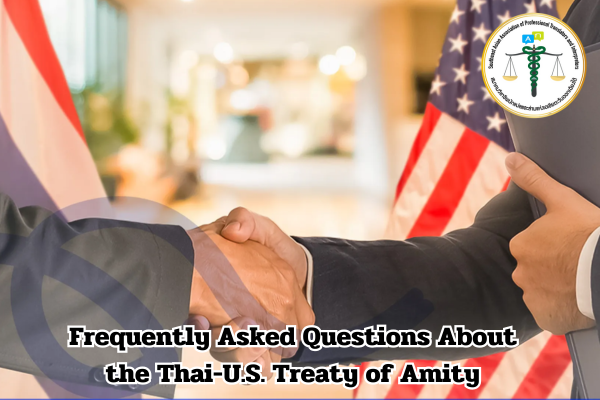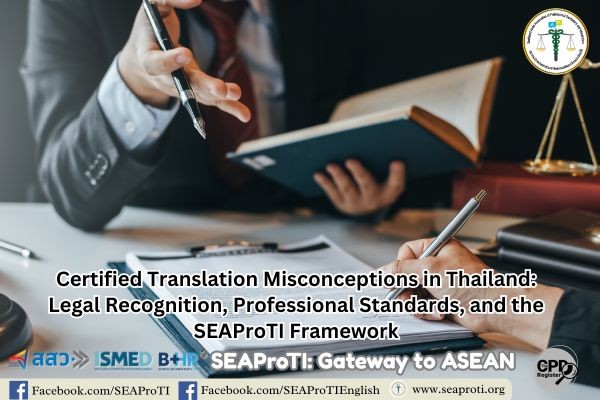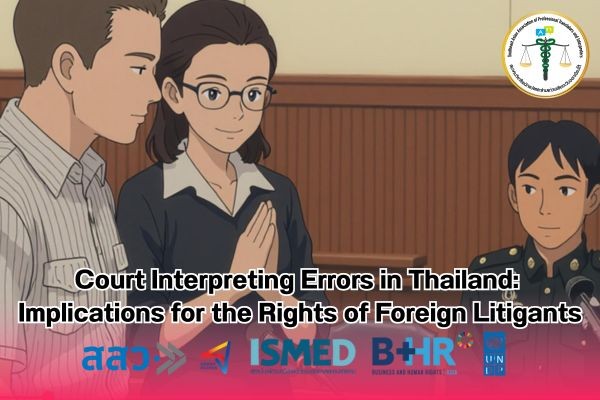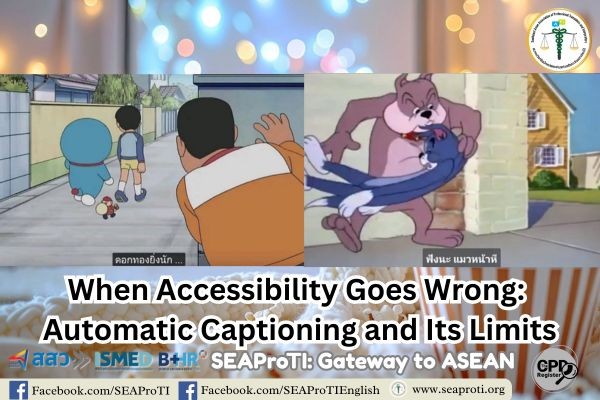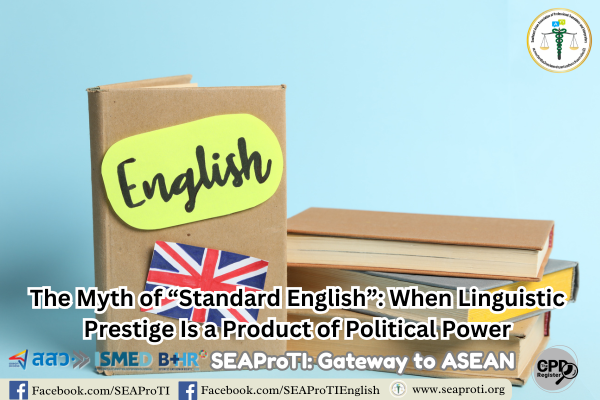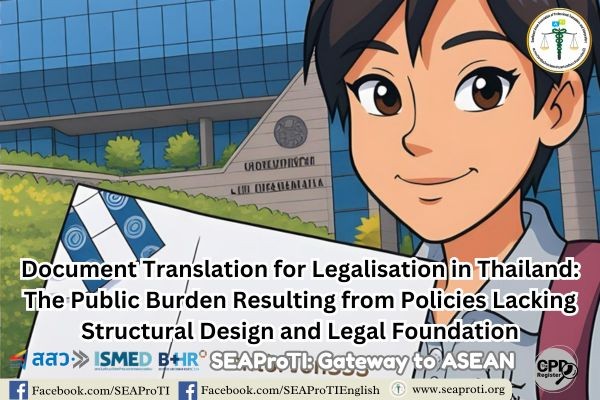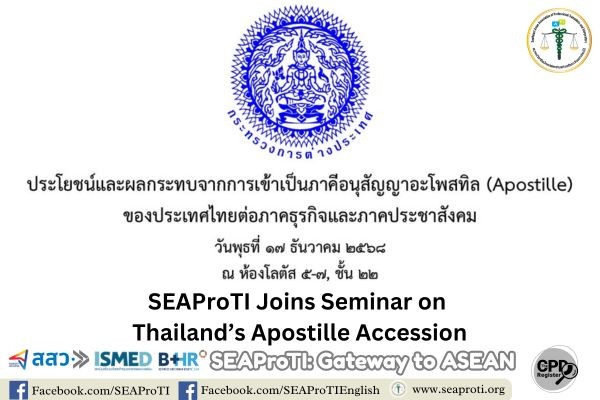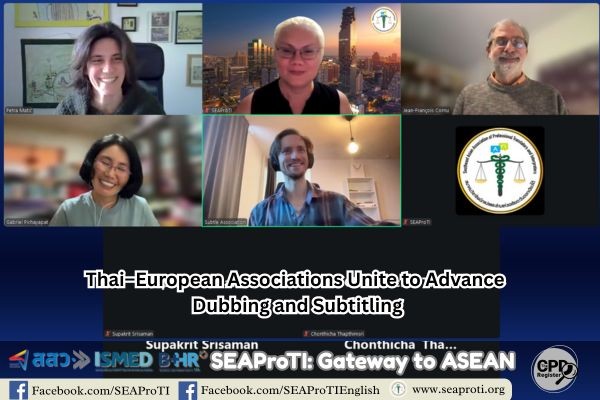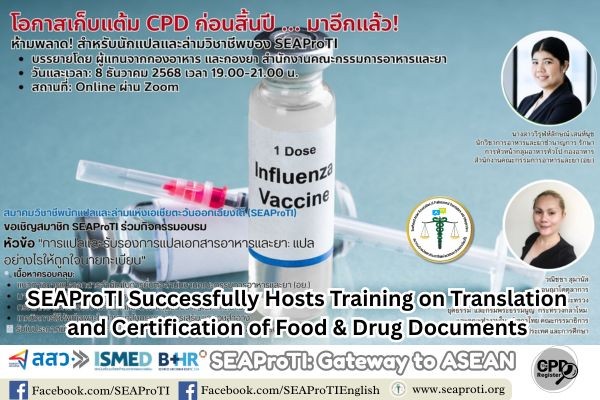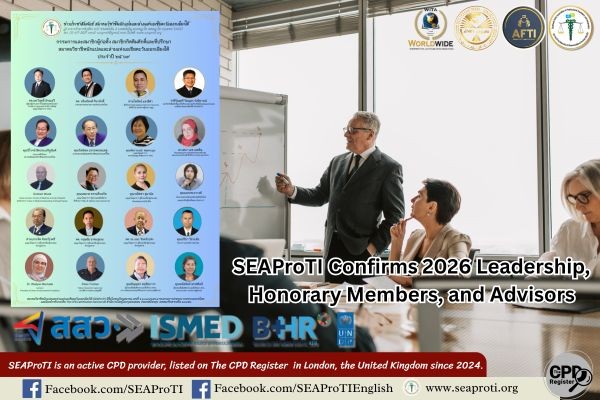Frequently Asked Questions About the Thai-U.S. Treaty of Amity
21 January 2025, Bangkok – This article aims to address some of the most common questions raised by clients regarding the Thai-U.S. Treaty of Amity. The treaty allows U.S. citizens and companies to be exempted from most of the restrictions imposed by the Foreign Business Act of 1999. Although the Treaty of Amity is relatively straightforward in its concept, the legal framework still contains nuances that may present challenges for U.S. businesses seeking to invest in Thailand under the treaty. Below are some of the key issues addressed:
Is it illegal for an American citizen to act as a nominee in a Treaty of Amity company on behalf of a non-U.S. foreigner?
Although the Foreign Business Act criminalizes nominee shareholding by Thai nationals on behalf of foreigners, the law does not explicitly criminalize nominee shareholder by a U.S. national in a Treaty of Amity company. Therefore, in theory, a U.S. national could act as a nominee for a non-U.S. foreigner. However, the requirements imposed by the Department of Business Development (DBD) when issuing Treaty of Amity certificates make it difficult for a U.S. national to act solely as a nominee, as will be explained below.
To what extent can non-U.S. foreigners be involved in a Treaty of Amity company?
Non-U.S. nationals, including Thai nationals, are only allowed to invest up to 49.99% of the capital in a Treaty of Amity company. However, non-U.S. nationals (excluding Thai nationals) are generally not allowed to serve on the board of directors, except under specific circumstances. Third-party nationals are allowed to serve on the board only if they are outnumbered by U.S. or Thai nationals. Furthermore, third-party nationals are only allowed to sign on behalf of the company if they co-sign with either Thai or American directors.
Under what conditions is a U.S. company with non-U.S. shareholders or juristic shareholders allowed to register a Treaty of Amity company?
The DBD only allows legal entities registered in the U.S. with majority American ownership and only authorized American directors to be granted protection under the Treaty of Amity. If the majority owners of a U.S. company are themselves a legal entity, that entity must be eligible to register a Treaty of Amity company in its own right for the company to do so.
Does the Treaty of Amity grant U.S. nationals and companies the right to operate businesses that are restricted by special laws?
No. The treaty is enforced through the Foreign Business Act, and Section 13 of the Foreign Business Act requires that specific laws regulating foreign ownership in certain businesses prevail over the Act. Therefore, any specific laws take precedence over the Treaty of Amity. For example, although the treaty does not prohibit Americans from operating a tourism business, the Tourism and Tour Guide Act of 2008 serves as a specific law restricting foreign investment in tourism. Hence, the Tourism and Tour Guide Act would take precedence over the Treaty of Amity.
The Treaty of Amity is complex, and American investors interested in doing business in Thailand under this treaty are advised to consult with competent Thai lawyers.
The Role of SEAProTI in Navigating the Treaty of Amity
Legal compliance and proper documentation are essential for leveraging the Treaty of Amity. The Southeast Asia Association of Translators and Interpreters (SEAProTI) plays a vital role in assisting businesses by providing:
- Certified Translators: Ensuring accurate and precise translation of complex legal documents, including corporate registration papers and business contracts.
- Certified Translation Services: Verifying translations to meet the stringent standards required by Thai authorities.
- Certified Interpreters: Facilitating seamless communication between stakeholders, including legal representatives and government officials, during negotiations and meetings.
By bridging linguistic and cultural gaps, SEAProTI-certified professionals empower U.S. businesses to navigate the intricate framework of Thai law confidently and effectively.
Conclusion
The Thai-U.S. Treaty of Amity is a powerful tool for U.S. investors looking to do business in Thailand. However, understanding its complexities and ensuring compliance with Thai regulations is crucial. Businesses are encouraged to seek advice from experienced Thai lawyers and utilize the services of SEAProTI-certified professionals for all translation and interpretation needs.
SEAProTI’s certified translators, translation certification providers, and certified interpreters:
The Southeast Asian Association of Professional Translators and Interpreters (SEAProTI) has officially announced the criteria and qualifications for individuals to register as “Certified Translators,” “Translation Certification Providers,” and “Certified Interpreters” under the association’s regulations. These guidelines are detailed in Sections 9 and 10 of the Royal Thai Government Gazette, issued by the Secretariat of the Cabinet under the Office of the Prime Minister of the Kingdom of Thailand, dated July 25, 2024, Volume 141, Part 66 Ng, Page 100.
To read the full publication, visit: the Royal Thai Government Gazette
คำถามที่พบบ่อยเกี่ยวกับสนธิสัญญาไมตรีไทย-สหรัฐฯ
21 มกราคม 2568, กรุงเทพมหานคร – บทความนี้มีวัตถุประสงค์เพื่อไขข้อสงสัยเกี่ยวกับสนธิสัญญาไมตรีไทย-สหรัฐฯ ซึ่งช่วยให้บุคคลและบริษัทสัญชาติอเมริกันได้รับการยกเว้นจากข้อจำกัดส่วนใหญ่ของ พ.ร.บ. การประกอบธุรกิจของคนต่างด้าว พ.ศ. 2542 แม้ว่าหลักการพื้นฐานของสนธิสัญญานี้จะมีความชัดเจน แต่ข้อกฎหมายยังมีรายละเอียดที่ซับซ้อน ซึ่งอาจเป็นอุปสรรคสำคัญต่อบริษัทสัญชาติอเมริกันที่ต้องการลงทุนในประเทศไทย ภายใต้สนธิสัญญาดังกล่าว ปัญหาหลักที่พบมีดังนี้
การเป็นตัวแทนของคนอเมริกันในบริษัทสนธิสัญญาไมตรี
หนึ่งในคำถามที่พบบ่อยคือการที่คนอเมริกันสามารถดำรงตำแหน่งเป็นผู้ถือหุ้นแทนบุคคลหรือนิติบุคคลอื่น ๆ ได้หรือไม่ แม้ว่าพ.ร.บ. การประกอบธุรกิจของคนต่างด้าวจะห้ามการถือหุ้นแบบตัวแทนโดยคนไทยแทนชาวต่างชาติ แต่กฎหมายไม่ได้ห้ามชัดเจนว่าคนอเมริกันจะดำรงตำแหน่งดังกล่าวในบริษัทสนธิสัญญาไมตรี อย่างไรก็ตาม การออกใบรับรองสนธิสัญญาไมตรีโดยกรมพัฒนาธุรกิจการค้า (DBD) ได้กำหนดเงื่อนไขที่ซับซ้อน ซึ่งทำให้คนอเมริกันเป็นเพียงผู้ถือหุ้นแทนบุคคลหรือนิติบุคคลอื่นได้ยาก
การมีส่วนร่วมของคนต่างชาติอื่นในบริษัทสนธิสัญญาไมตรี
สำหรับคนต่างชาติอื่น ๆ ที่ไม่ใช่คนอเมริกัน เช่น คนไทยหรือนิติบุคคลอื่น ๆ สามารถลงทุนได้สูงสุด 49.99% ของทุนจดทะเบียนในบริษัทสนธิสัญญาไมตรี อย่างไรก็ตาม บุคคลหรือองค์กรที่ไม่ใช่คนอเมริกันส่วนใหญ่จะไม่ได้รับอนุญาตให้นั่งเป็นกรรมการ ยกเว้นในกรณีพิเศษ โดยในกรณีที่บุคคลหรือนิติบุคคลเหล่านั้นเป็นบุคคลภายนอก (Third-party nationals) จะต้องมีจำนวนกรรมการคนไทยหรือคนอเมริกันที่มีอำนาจตัดสินใจมากกว่า และในกรณีที่ต้องลงนามให้บริษัทนั้นต้องร่วมลงนามกับกรรมการคนไทยหรือคนอเมริกัน
เงื่อนไขในการจดทะเบียนบริษัทสนธิสัญญาไมตรีของบริษัทสหรัฐฯ ที่มีผู้ถือหุ้นหรือนิติบุคคลต่างชาติ
กรมพัฒนาธุรกิจการค้า (DBD) ได้กำหนดเงื่อนไขว่าบริษัทที่จดทะเบียนในสหรัฐฯ จะได้รับการคุ้มครองภายใต้สนธิสัญญาไมตรี หากมีกรรมการที่ได้รับการแต่งตั้งจากชาวอเมริกัน และมีผู้ถือหุ้นที่เป็นคนอเมริกันอย่างน้อย 50% หากบริษัทมีผู้ถือหุ้นเป็นนิติบุคคล บุคคลหรือองค์กรนั้นต้องมีคุณสมบัติตามกฎหมายในการจดทะเบียนบริษัทสนธิสัญญาไมตรีเองด้วย
สนธิสัญญาไมตรีไม่ยกเว้นข้อจำกัดจากกฎหมายเฉพาะ
แม้ว่าสนธิสัญญาไมตรีจะช่วยให้คนอเมริกันและบริษัทสหรัฐฯ สามารถดำเนินธุรกิจได้โดยหลีกเลี่ยงข้อจำกัดส่วนใหญ่ใน พ.ร.บ. การประกอบธุรกิจของคนต่างด้าว แต่ข้อกำหนดเฉพาะของกฎหมายอื่น ๆ ก็ยังมีผลเหนือสนธิสัญญานี้ เช่น ในกรณีของการประกอบธุรกิจท่องเที่ยวซึ่งถูกควบคุมโดยพระราชบัญญัตินักท่องเที่ยวและมัคคุเทศก์ พ.ศ. 2551 ซึ่งมีข้อบังคับที่เข้มงวดเกี่ยวกับการลงทุนจากต่างชาติ ดังนั้นกฎหมายเฉพาะจะมีผลเหนือกว่าและทำให้สนธิสัญญาไมตรีไม่มีผลบังคับในกรณีนี้
เนื่องจากสนธิสัญญาไมตรีมีความซับซ้อน ผู้ที่สนใจลงทุนในประเทศไทยภายใต้สนธิสัญญานี้ควรปรึกษาทนายความที่มีความเชี่ยวชาญด้านกฎหมายไทย
บทบาทของ SEAProTI ในการดำเนินธุรกิจภายใต้สนธิสัญญามิตรภาพ
การปฏิบัติตามข้อกำหนดทางกฎหมายและการจัดทำเอกสารที่ถูกต้องเป็นสิ่งสำคัญในการใช้สิทธิ์ภายใต้สนธิสัญญามิตรภาพ สมาคมนักแปลและล่ามแห่งเอเชียตะวันออกเฉียงใต้ (SEAProTI) มีบทบาทสำคัญในการสนับสนุนธุรกิจด้วยบริการดังนี้:
- นักแปลรับรอง: ช่วยแปลเอกสารกฎหมายที่ซับซ้อน เช่น เอกสารจดทะเบียนบริษัท และสัญญาทางธุรกิจอย่างถูกต้องและครบถ้วน
- บริการแปลรับรอง: รับรองความถูกต้องของเอกสารแปลให้สอดคล้องกับมาตรฐานของหน่วยงานในประเทศไทย
- ล่ามรับรอง: อำนวยความสะดวกในการสื่อสารระหว่างนักลงทุนและหน่วยงานราชการไทย รวมถึงที่ปรึกษากฎหมาย
SEAProTI ช่วยลดความซับซ้อนในการดำเนินการด้านเอกสารและการสื่อสาร เพื่อให้ธุรกิจของชาวอเมริกันดำเนินไปได้อย่างราบรื่นและมั่นใจ
สรุป
สนธิสัญญามิตรภาพไทย-สหรัฐฯ เป็นเครื่องมือสำคัญสำหรับนักลงทุนอเมริกันที่ต้องการดำเนินธุรกิจในประเทศไทย อย่างไรก็ตาม ความซับซ้อนของกฎหมายไทยและข้อกำหนดที่เกี่ยวข้องทำให้จำเป็นต้องมีการปรึกษาที่ปรึกษากฎหมายที่มีประสบการณ์ และใช้บริการนักแปล ล่าม และผู้ตรวจสอบเอกสารรับรองจาก SEAProTI เพื่อสนับสนุนทุกขั้นตอนของการดำเนินงาน
เกี่ยวกับนักแปลรับรอง ผู้รับรองการแปล และล่ามรับรองของสมาคมวิชาชีพนักแปลและล่ามแห่งเอเชียตะวันออกเฉียงใต้
สมาคมวิชาชีพนักแปลและล่ามแห่งเอเชียตะวันออกเฉียงใต้ (SEAProTI) ได้ประกาศหลักเกณฑ์และคุณสมบัติผู้ที่ขึ้นทะเบียนเป็น “นักแปลรับรอง (Certified Translators) และผู้รับรองการแปล (Translation Certification Providers) และล่ามรับรอง (Certified Interpreters)” ของสมาคม หมวดที่ 9 และหมวดที่ 10 ในราชกิจจานุเบกษา ของสำนักเลขาธิการคณะรัฐมนตรี ในสำนักนายกรัฐมนตรี แห่งราชอาณาจักรไทย ลงวันที่ 25 ก.ค. 2567 เล่มที่ 141 ตอนที่ 66 ง หน้า 100 อ่านฉบับเต็มได้ที่: นักแปลรับรอง ผู้รับรองการแปล และล่ามรับรอง


